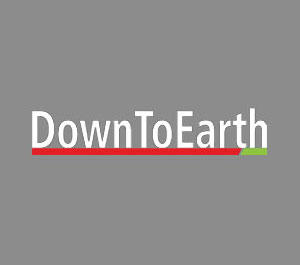The Environment Health Bulletin - March, 2014
 Quarterly newsletter by Food Safety and Toxins unit
March 07, 2014
|
|||||||||||||||||
 Dear friends, Dear friends,During the last quarter, the food safety team worked on a range of issues. We conducted India’s biggest study on heavy metal presence in cosmetics and measured radiofrequency radiations from mobile phone towers in a couple of cities. Both are new campaigns for the team. In addition, we contributed towards limiting the accessibility and exposure of junk food to our children. We are a part of an expert group of the Food safety and standards authority of India (FSSAI) that was set up as per the order of the Hon’ble High Court of Delhi to address a Public Interest Litigation in this regard. Toxic heavy metals in cosmetics are a growing concern across the world. Heavy metals such as lead, mercury, cadmium, chromium and nickel have reportedly been found in unsafe levels in various cosmetic products. In India, the use of cosmetics is rapidly increasing, particularly among the young population. Taking note of this potential public health concern, we tested over 70 cosmetic products ? 32 fairness creams, 30 lipsticks, 8 lip-balms and 3 anti-ageing creams ? for presence of heavy metals. The products were picked up from Delhi and included commonly available Indian and International brands along with a few herbal products. The results were startling. Presence of mercury is prohibited in cosmetics as per the Indian Drugs and Cosmetics Act and Rules, however 44 percent of the 32 fairness creams were found with mercury. Chromium was found in 50 percent and nickel in 43 percent of the 30 lipsticks that were tested. While some chromium and nickel compounds are allowed as ingredients, there are no limits set for both in final products under Indian regulations, making their presence unregulated. However, we checked the safety of the lipsticks by comparing the levels of heavy metals in them with their respective Acceptable Daily Intakes (ADIs). Depending upon product and amount applied, we found that chromium in 13 out of 30 lipsticks crossed the ADI for chromium. Lipstick with highest level of chromium would expose a heavy user to over 15 times the safety limit and hence highly unsafe. We shared the results with the companies. Though none disputed our findings, most took refuge in the concept of 'trace' presence. Their defence is that the heavy metal found is small in quantity and it is unavoidable because it is part of the ingredients. They also claimed that their product is safe for long term use. But we countered their claims by showingthat the levels at which we found heavy metals in products is exposing consumers to well above the ADI limits. We released the study the public in mid-January. It is clear to us that the current state of affairs is largely because of the regulatory gaps and the poor implementation of the existing regulations. We have written to Ministry of Health and Family Welfare and Bureau of Indian Standards to bring their attention to the need for regulatory reforms. Specifically, we have asked for standards for finished products; independent assessment system to approve products; strengthening of existing implementation framework to check compliance with law; and a public disclosure and warning system. We hope that these reforms will be implemented by the government agencies quickly. There has been an increasing concern about the mobile tower radiations in India. Taking this concern in to account, CSE’s Pollution Monitoring Lab (PML) has acquired a state-of-the-art radiation monitoring equipment. We have started monitoring mobile phone towers in and around Delhi. We also monitored towers in Colombo, Sri Lanka. Though our study is not yet complete, we believe that the new mobile tower guideline of the Department of Telecom is a big let down. While public health imperatives necessitate stricter regulations, the latest guidelines actually dilute the stringent policies of certain states. We hope to challenge this new guideline once our study is over. So watch out for our study on the mobile tower radiations. Our battle on stringent trans fat regulations continues. In the wake of the USFDA determination to declare artificial trans fatty acids as not “generally recognised as safe” for consumption, we have questioned when it will happen in India? Similarly, we are also asking FSSAI when it will ban junk food in our schools. These fights will continue; we will keep you posted as they happen. We look forward to your comments and suggestions. |
|||||||||||||||||
| -Chandra Bhushan | |||||||||||||||||
|
|||||||||||||||||
 |
|||||||||||||||||
 |
|||||||||||||||||
| Centre for Science and Environment41, Tughlakabad Institutional Area, New Delhi. India - 110062 | Tel: +91-11 29955124, 29956110, 40616000 Fax: +91-11 29955879 | E-mail: cse@cseindia.org | |||||||||||||||||
Press Releases
Story
Newsletter
Down to Earth

October 30, 2017

October 30, 2017

October 30, 2017

October 30, 2017

October 30, 2017

October 30, 2017

October 30, 2017

October 30, 2017

October 30, 2017

October 30, 2017

October 30, 2017

October 30, 2017

October 30, 2017

.jpg)
October 30, 2017

October 30, 2017


October 30, 2017
















Share this article